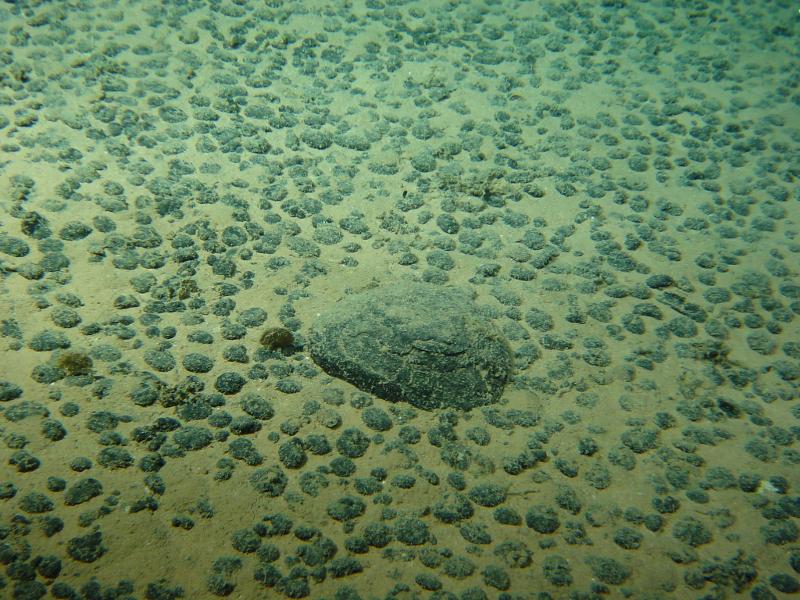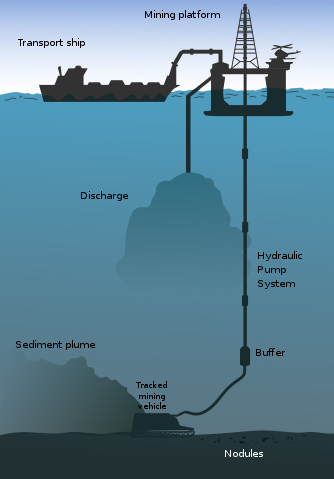 In a controversial move, the Norwegian government voted to approve opening up about 280,000 km2 of its national waters for private companies to engage in deep-sea mining.
In a controversial move, the Norwegian government voted to approve opening up about 280,000 km2 of its national waters for private companies to engage in deep-sea mining.
The companies are likely to begin extraction only in the 2030s. However, EU officials and Norwegian environmentalists have warned of the disastrous consequences for the marine environment.
Private mining companies, however, argue that it is necessary to maintain supplies of vital materials like cobalt.
So, what is deep-sea mining, and what are the potential consequences of Norway’s decision?
What Is Deep Sea Mining?
Deep sea mining is the process of mining rare minerals, such as lithium and cobalt, from the crust of the ocean floor.
 Before mining begins, there must be a long and detailed mapping process of the ocean floor to ensure mining is done safely and efficiently, and only then can metal-rich nodules be collected from the sea floor. Rare metals are then harvested from these nodules and used in manufacturing. Once these nodules run out, however, companies plan to remove layers of crust on the ocean floor to reach the precious metals.
Before mining begins, there must be a long and detailed mapping process of the ocean floor to ensure mining is done safely and efficiently, and only then can metal-rich nodules be collected from the sea floor. Rare metals are then harvested from these nodules and used in manufacturing. Once these nodules run out, however, companies plan to remove layers of crust on the ocean floor to reach the precious metals.
Why look to the sea for such resources? Well, these rare metals are necessary for the manufacturing of batteries, wind turbines, and solar panels, which are needed to power more environmentally friendly technology.
Those in favor of deep-sea mining argue that as supplies of rare minerals dwindle, it is necessary to turn to other sources instead of relying on politically unstable countries. In addition, they argue that private companies have more funding and can help map out and explore areas in the deep sea that have long eluded scientists.
Environmental Concerns
The ocean floor is an infamously mysterious place, full of undiscovered species. With geological structures such as underwater mountains, thermal vents, and deep trenches, the seafloor houses species uniquely adapted to this hostile environment.
 Scientists and environmentalists are concerned that digging in these pristine environments could disrupt and fragment underwater ecosystems. Fragmentation happens when a contiguous and interconnected ecosystem is broken up into patches, making it hard for species to travel, feed, or find mates.
Scientists and environmentalists are concerned that digging in these pristine environments could disrupt and fragment underwater ecosystems. Fragmentation happens when a contiguous and interconnected ecosystem is broken up into patches, making it hard for species to travel, feed, or find mates.
The heavy mining equipment could crush marine species or disperse fine sediments on the ocean floor. As the sediments slowly settle down, they could impact visibility and communication in marine animals or suffocate them with dust. Light and sound from the operations could potentially impact the feeding and reproductive behaviors of deep-sea animals.
In addition, waste discharge from the ships could pollute the oceans and have wider impacts. Finally, coastal communities depend on the fishing industry, and the mining operations could displace them or impact their livelihood.
Next Steps
Norwegian authorities say they understand the gaps in knowledge and the permission is to allow private companies to begin mapping areas for mining.
Those against argue that there are many other unexplored solutions to the rare metal shortage besides turning to deep-sea mining. They have suggested improving recycling processes of rare metals which is projected to recover about 10-15% of annual cobalt needs. Also, battery technologies are constantly evolving -- with progress already being made on lithium iron phosphate (LIP) batteries that don't require deep-sea mining.
The issue highlights the need to evaluate impacts and alternatives before embarking on costly solutions such as mining the deep seas.
Sources: WRI, IUCN, BBC, NOAA






